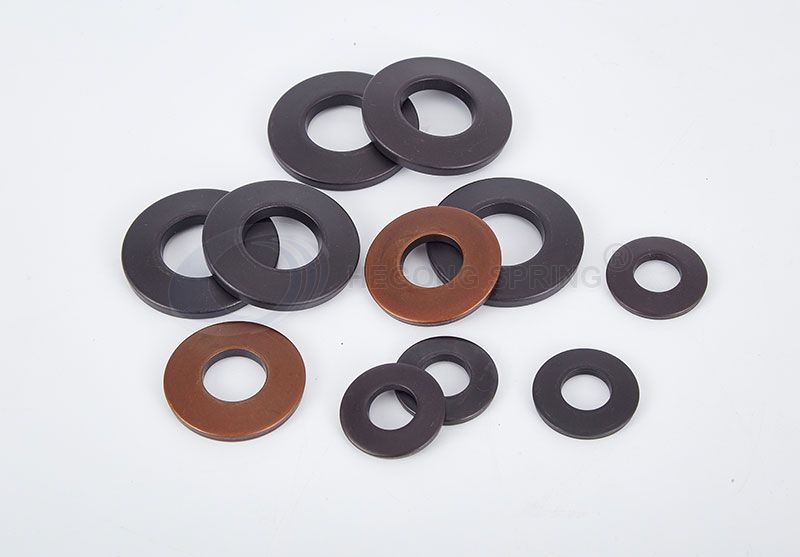How Many Times Can You Use a Belleville Washer?
Belleville washers, also known as disc springs or conical washers, are versatile mechanical components used in a wide range of engineering applications. These unique springs offer numerous advantages, including their ability to endure multiple cycles without compromising performance. In this article, we will explore the question "How many times can you use a Belleville washer?" and provide comprehensive insights into the factors that influence their longevity and repeated use.

Before delving into the question of usage cycles, let's briefly understand what Belleville washers are. These spring-like components have a conical shape and are designed to exert a controlled force when compressed. They are commonly used to maintain tension, compensate for thermal expansion, and prevent loosening of nuts and bolts due to vibration in various mechanical assemblies.
Material Selection
The longevity and endurance of Belleville washers depend significantly on the material from which they are made. The choice of material should be based on the specific application requirements, including load, environment, and temperature conditions.
Pro Tip: For applications requiring high durability and resistance to fatigue, stainless steel Belleville washers are often the preferred choice. Stainless steel exhibits excellent corrosion resistance, making it suitable for applications in harsh environments.
Load and Deflection Limits
Belleville washers have specific load and deflection limits, which should not be exceeded to ensure optimal performance and longevity. When selecting the appropriate washer for a given application, it is crucial to consider the applied load and the amount of deflection required.
Pro Tip: Always follow the manufacturer's guidelines and specifications to determine the proper washer size and ensure it operates within its load and deflection limits.
Fatigue Life
The fatigue life of a Belleville washer refers to the number of cycles it can endure before experiencing fatigue failure. This aspect is crucial for applications that require repeated loading and unloading cycles.
The fatigue life of Belleville washers can vary based on factors such as material, load, deflection, and environmental conditions. Under proper loading and within their specified limits, these washers can often withstand thousands of cycles without any significant signs of fatigue.
Preventing Overloading
To maximize the number of times a Belleville washer can be used, it is essential to avoid overloading. Overloading occurs when the applied load exceeds the washer's rated capacity, leading to premature failure and reduced service life.
Pro Tip: If the application requires higher loads than a single washer can handle, consider using multiple washers stacked together to distribute the load evenly and prevent overloading.
Proper Installation and Maintenance
The correct installation of disc spring washer is crucial for their optimal performance and prolonged use. Ensure that the washer is correctly seated and positioned within the assembly. Additionally, regular inspection and maintenance are essential to identify any signs of wear, fatigue, or deformation and replace the washers as necessary.
Pro Tip: Routinely check the condition of Belleville washers and replace them if they show signs of wear or damage to prevent potential failures and ensure the safety of the mechanical system.
In conclusion, Belleville washers are durable and reliable components that can endure multiple cycles when used within their specified limits. Proper material selection, adherence to load and deflection limits, consideration of fatigue life, preventing overloading, and ensuring proper installation and maintenance are key factors that contribute to the prolonged use of these washers.
171
0
0
All Comments (0)
If you are interested in sending in a Guest Blogger Submission,welcome to write for us!




Comments